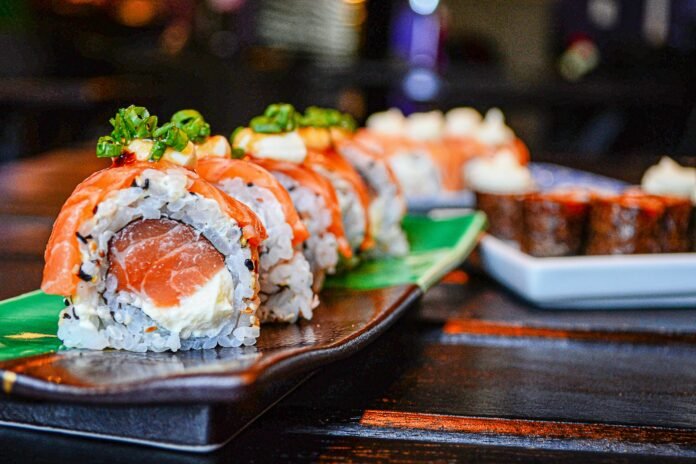Sushi lovers know this little fear before biting into a delicious salmon avocado roll: “What if that fish isn’t as fresh as it should be?“This legitimate question leads some to wonder whetherthere are some types of fish that are safer than others for raw consumption. In fact, the freshness and the way in which the fish has been stored play a decisive role in the prevention of food poisoning, explains
Huffington Post.
Sam Martin, senior director and food safety expert at Microbac Laboratories, points out The presence of harmful bacteria on raw fish mainly depends on how the fish was raised and storedrather than the species itself. Bacteria such as Listeria monocytogenes, Vibrio and Salmonella are common and their spread depends on the storage conditions of the fish and post-catch processing.
Which fish should you absolutely avoid?
Martin warns against raw salmon, due to its high risk of containing parasites, including tapeworms. “In recent years there has been an increase in cases of salmon with tapeworms“, he explains. Eating raw or undercooked salmon, as is often the case in sushi, increases the risk of infection. In addition to parasites, salmon can also harbor bacteria such as Salmonella, Vibrio vulnificus and E. coli.
Eels, although susceptible to carrying parasites, are usually served cooked (unagi) in sushi restaurants, which significantly reduces the risk of food poisoning. Cooking kills the bacteria present, ensuring safer consumption.
And what about tuna?
Tuna, often popular with sushi lovers, also poses risks when eaten raw, but these are minor compared to salmon. Tuna is less likely to contain parasites, although caution is still advised. Dr. Will Bulsiewicz, board-certified gastroenterologist, points out that the term “fish in sushi quality” is not regulated by the FDA, and therefore may cause confusion as to the true safety of the product.
For immunocompromised individuals or those wishing to avoid foodborne illness, it is advisable to turn to cooked sushi. Options like tempura rolls with shrimp, spider rolls with fried soft-shell crab, or unagi rolls with grilled eel offer tasty and safer alternatives.
Cooking, the only way to reduce the risk of poisoning
Martin confirms that cooking is the most reliable method of reducing the risk of foodborne illness. “Cooking is the only sure way to reduce the chances of contracting diseases caused by bacteria, parasites and viruses,” he says. Sushi containing shrimp or “crab“(often surimi made from hake) is usually prepared, as are vegetarian options with avocado, cucumber or tofu.
Most sushi restaurants take strict measures to ensure the safety of their raw dishes. This includes flash freezing fish at -4°F for seven days to eliminate parasites. However, it is always good to trust your sense of smell: fresh fish should be shiny, translucent, without pungent or excessive smell.
